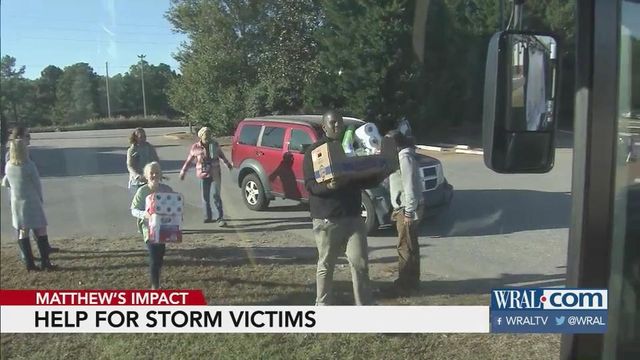Here to Help: Give money, time, goods to storm relief
North Carolina is the midst of a natural disaster after Hurricane Matthew brushed the state. Now is when your neighbors need you most.
Posted — UpdatedThe flooding after Hurricane Matthew claimed more than 20 lives in North Carolina and devastated homes, businesses and farms.
WRAL viewers have committed more than $200,000 to help the victims of Hurricane Matthew through the American Red Cross Triangle Area Chapter, Salvation Army North and South Carolina and NC Baptists On Mission (NCBM).
Make a secure online donation to one of our partner agencies:
The Attorney General's Office offered these tips to make sure your donations reach those most in need after Hurricane Matthew:
Copyright 2024 by Capitol Broadcasting Company. All rights reserved. This material may not be published, broadcast, rewritten or redistributed.






